Türkiye’s Marmara Sea struggles to breathe as mucilage expands
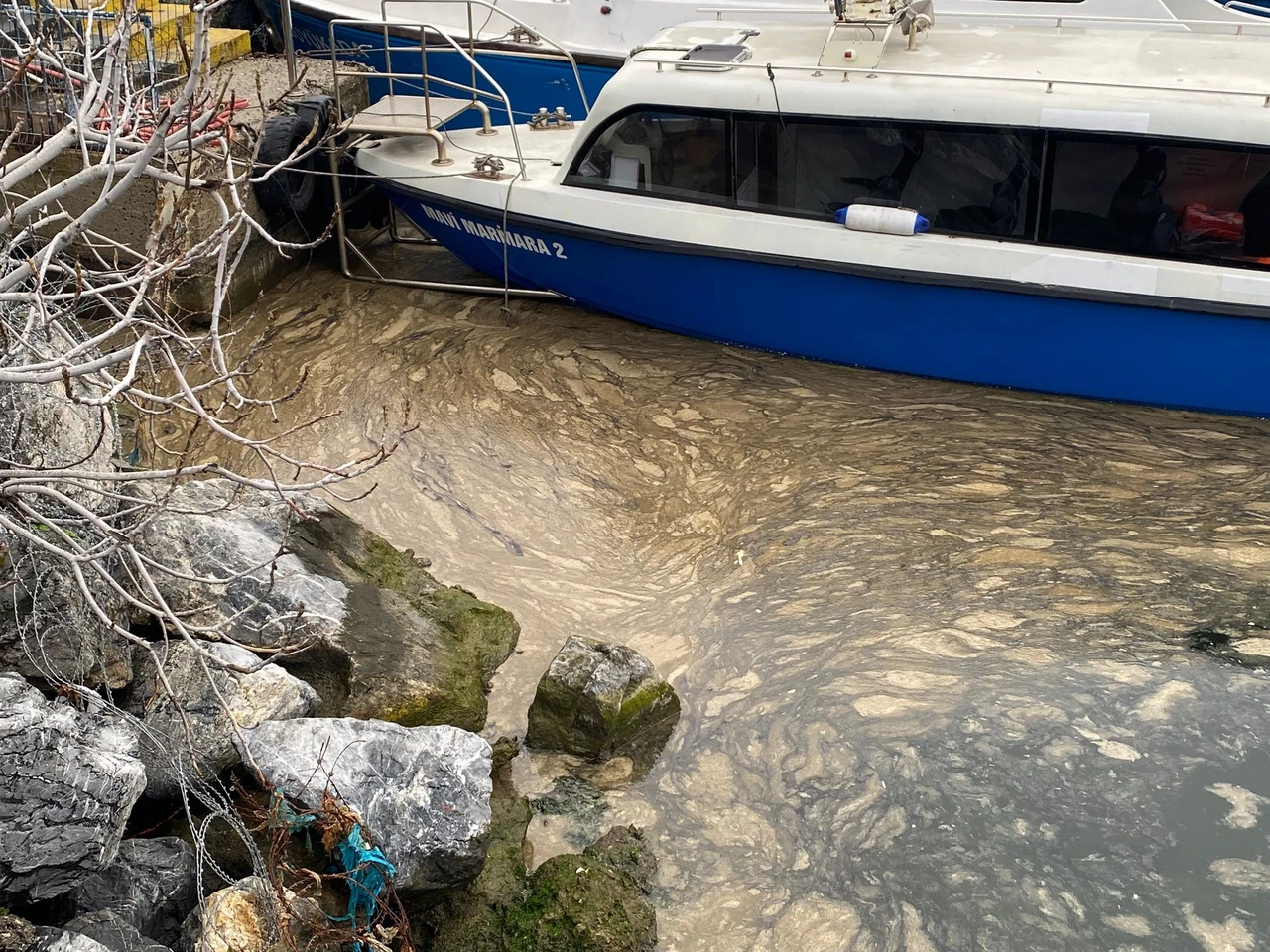 Mucilage, which has started to reappear in the Marmara Sea, is also seen in Kadikoy, Istanbul, Türkiye, January 15, 2025. (IHA Photo)
Mucilage, which has started to reappear in the Marmara Sea, is also seen in Kadikoy, Istanbul, Türkiye, January 15, 2025. (IHA Photo)
The alarming resurgence of mucilage, commonly known as “sea snot,” has surfaced in Marmara and the Aegean Seas. After its devastating impact in 2021, the thick white layer has now spread from Adalar to the shores of Kadikoy.
A crisis resurfaces in Marmara
The Marmara Sea is facing the return of mucilage, spreading from the depths of the sea to the surface. The once-hidden layer has now expanded from Erdek and Mudanya to Buyukcekmece, creating visible pollution.
In Adalar (Princes’ Islands), the sticky white substance has reached levels capable of damaging fishing nets, while in Bostanci, it blankets the sea surface.
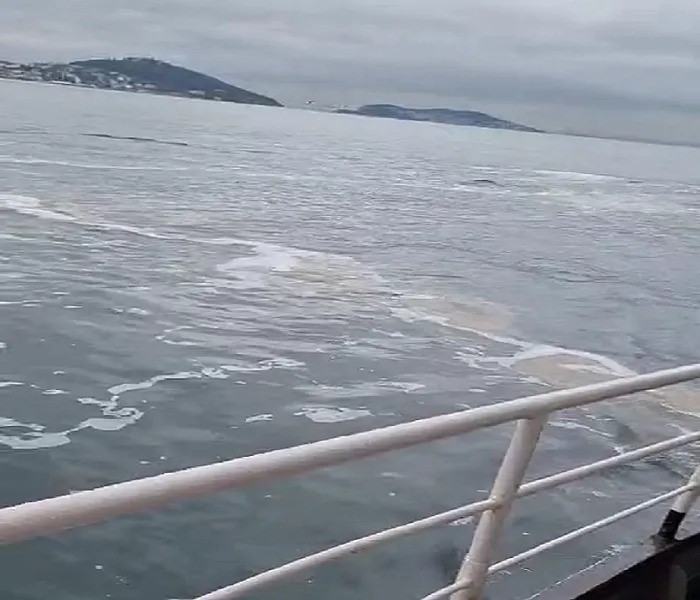
Mucilage filmed off Buyukada
In Istanbul’s Buyukada (meaning “Big Island” in Turkish, is the largest of the Princes’ Islands in the Marmara), mucilage was seen covering the sea’s surface, with dramatic footage captured on a citizen’s mobile phone.
The striking visuals highlight the gravity of the crisis, drawing attention to the urgent need for action.
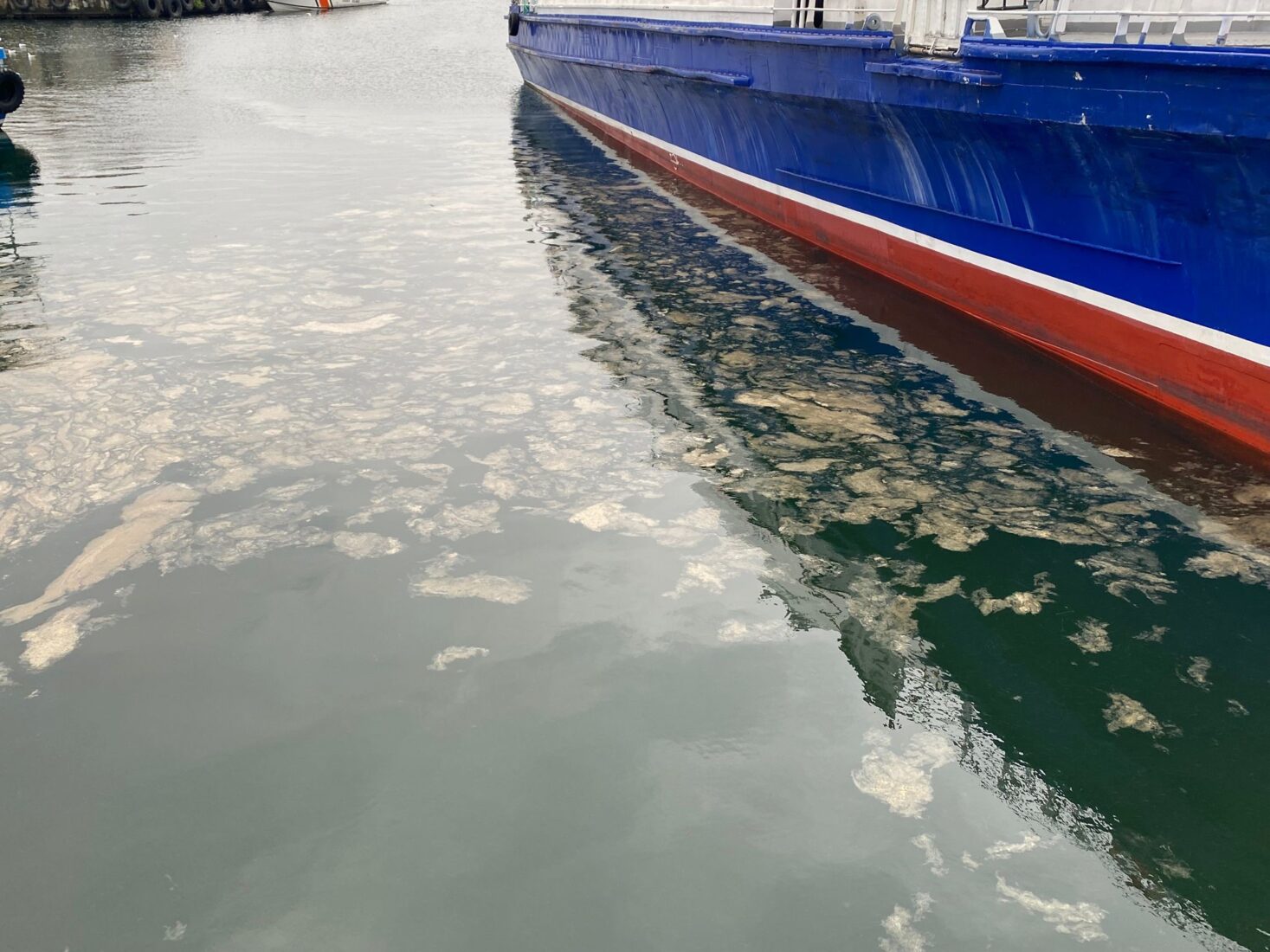
Mucilage threatens marine ecosystems
Known among locals as “sea snot,” mucilage caused significant environmental damage in 2021, affecting not only the Marmara Sea but also the western Black Sea and southern Aegean regions.
Its reappearance is sparking renewed concerns over marine ecosystems and local economies.
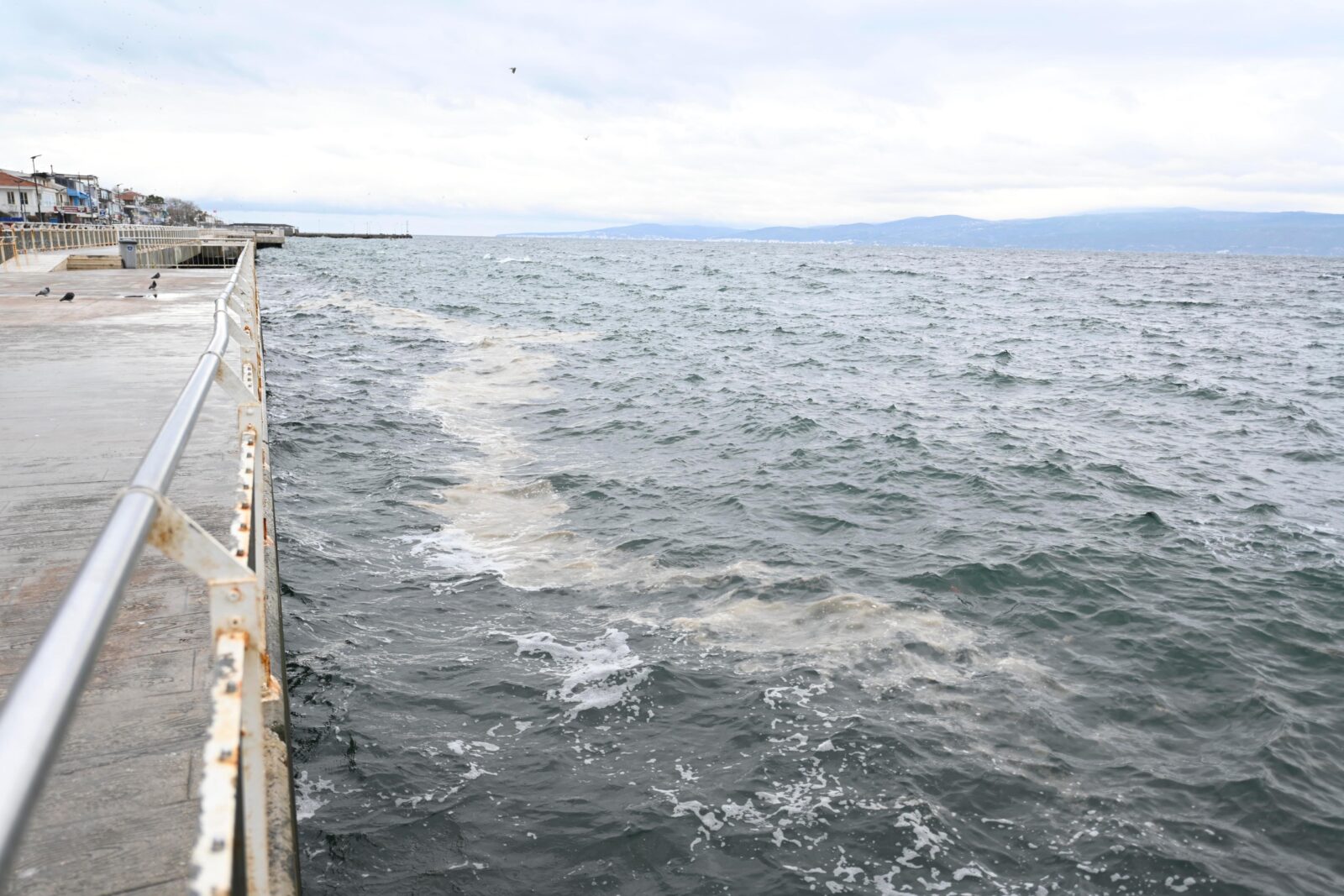
Call for urgent action to combat mucilage
Bursa Metropolitan Municipality Mayor Mustafa Bozbey has emphasized the severity of the issue, urging authorities to adopt comprehensive strategies to address marine pollution. During an inspection in Gemlik Bay, Mayor Bozbey and his team observed the worsening mucilage problem firsthand.
Bozbey warned of a dire future if action is delayed:
“Scientists predict that without immediate intervention, marine life in the Marmara Sea could face near-total extinction within 25 years. This is not just an environmental crisis—it endangers regional economies and public health. An urgent, united effort is required to combat this threat, including robust waste management strategies.”
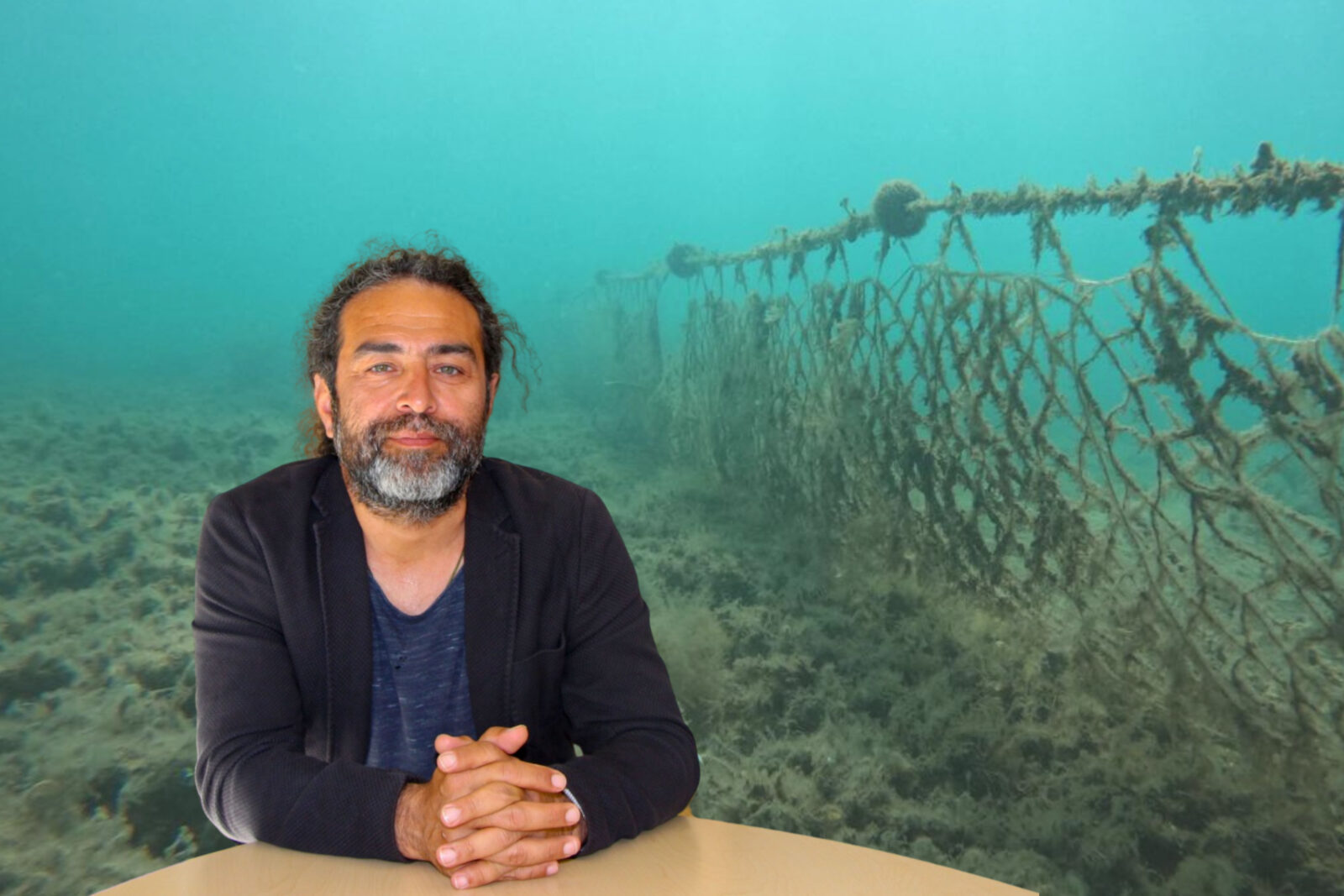
What do the experts think?
We gained insights from an interview with Professor Deniz Ayas from the Faculty of Aquaculture at Mersin University.
Professor Ayas addressed whether eliminating such fishing practices would solve the problem of mucilage: “Mucilage is a natural phenomenon and occurs naturally. Mucilage is the conversion of increased nutrient salts in the marine environment into food by plankton. We are experiencing these problems because overfishing practices have eliminated the living groups that would eliminate this food. If the seas is allowed to recover, nature will continually renew itself.”
The return of mucilage to Marmara Sea serves as a stark reminder of the urgent need for sustainable waste management and environmental policies in Türkiye. Without immediate action, the consequences could be catastrophic for marine ecosystems, regional economies, and public health.



